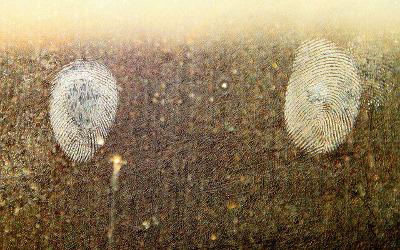£650k funding secured for OU trust in forensic science project

A team led by The Open University (OU) has successfully secured a funding grant worth £657,922 for a project investigating trust in forensic science.
The project titled ‘trust in forensic science evidence in the criminal justice system: The experience of marginalised groups’ sits within the OU’s School of Psychology & Counselling and will run for one year starting 1 March 2024. This novel, interdisciplinary project will identify key touchpoints and influences where trust (and distrust) in forensic science arises amongst marginalised users of the Criminal Justice System. The result of the project will be the development of a tool to mitigate this distrust.
By exploring the perspectives and experiences of users when looking at DNA and digital evidence, the project will develop insights into how public understanding is shaped around the preparation, sharing, and presentation of forensic evidence, from crime scene to courtroom.
The aim is to examine whether understanding public levels of trust in forensic science can better inform how, when, and why scientific evidence is used in criminal justice procedures. The resulting tool and educational resources will help to investigate and improve public trust and understanding of forensic science evidence and the processes associated with its use.
Lara Frumkin, Head of Discipline of Psychology & Counselling at The Open University, will be leading the project and working with investigators Heather Flowe, University of Birmingham; Maria Maclennan, University of Edinburgh; Niamh NicDaeid, University of Dundee; Vincent Hughes, University of York; Emmanuel Nsiah Amoako, University of the West of England and Emma Johnston, De Montfort University.
Speaking of the project Dr Frumkin said, “Forensic science was originally seen as a ground-breaking tool for aiding the investigation of crime, though it is now experiencing a crisis of credibility; government, policymakers, and academics acknowledge that trust and confidence in forensic science evidence is under threat. This project will establish levels of trust in forensic science evidence amongst both marginalised communities and comparison user groups, to mitigate mistrust through four specific objectives.”
To carry out the project the team will first examine existing evidence around what trust in forensic science means to the public generally and marginalised user groups; stakeholder, policy, practitioner, and government understandings of what trust means; and how forensic science is used throughout the Criminal Justice System. The team will then investigate forensic science professionals' perspectives on where the science may enhance an investigation or case and when it might fall short of helping to provide answers.
Once the investigative work has been completed, the team will co-design two interactive participatory games. The first will gather evidence on trust thresholds for forensic science evidence. By utilising small group interactive action, the team will garner meaningful perspectives from marginalised communities whose voices are typically excluded. As decisions handed down are based partially on forensic science, it is necessary to understand how, when and where the science is and is not trusted by users.
The second participatory game will be developed for online use, where participants will be invited to explore trust in Criminal Justice System authorities, gathering community insights to establish baseline trust levels across public user groups. These approaches support the research team's commitment to empowering the public as active co-designers throughout design.
Finally, findings will be used to iteratively co-design a prototype for a tool – with users, for users – to measure the implications and mitigation of (dis)trust in forensic science evidence. Tool specifications will be developed throughout the project lifecycle to ensure a relevant, accessible, and desirable design, delivered both with user input and evidence supporting its design.
You may also be interested in:
Contact our news team
For all out of hours enquiries, please telephone +44 (0)7901 515891
Contact detailsNews & articles

OU researchers lead international advances in planetary protection
Open University researchers are leading international advances in planetary protection, helping ensure that space exploration is safe, sustainable, and scientifically rigorous.